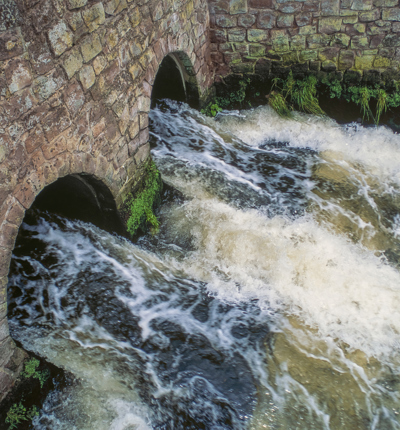
Legal challenge signalled over Sellafield water extraction plans
Campaign group Lakes Against Nuclear Dump (LAND) has taken the first steps in a legal challenge against the Environment Agency’s (EA) decision to grant Sellafield a licence to extract large quantities of water and dispose the polluted byproduct.
Posted on 14 August 2025
The water extraction operation is set to be part of an excavation to make way for a new nuclear waste storage facility, with LAND warning that the process could result in waste water entering Cumbria’s waterways.
In a legal letter to the EA, signalling the start of the judicial review process, LAND says that the EA failed to justify how the water extraction operation would be compliant with environmental regulations.
In July 2024, Sellafield made an application to the Environment Agency for a water abstraction licence, which would allow it to remove up to 40 cubic metres of water per hour for a period of seven years.
This would be to aid the construction of the Box Encapsulation Plant Product Store 2 – a planned new radioactive waste storage facility – and would see groundwater extracted from the construction site to make way for the development.
In March 2025, the EA gave notice of the application and set an April deadline for consultation responses. LAND along with Nuclear Free Local Authorities (NFLA) raised a number of concerns in response to the consultation, including a failure to assess the environmental impact.
In May, LAND was informed by the EA that Sellafield had been granted a water abstraction licence, meaning that the power plant will be able to go ahead with extracting water from the site.
The EA concluded in its decision that the operation would be unlikely to degrade water quality, which LAND disagrees withsaying there is no reasoning for the decision.
The group also says that plans to discharge the extracted water via the Calder Interceptor Sewer risk contaminating the River Calder and River Ehen.
LAND raises further concerns with the granting of the licence, with a copy of the licence itself not being made publicly available and limited information provided on the conditions of the licence.
At the start of August, LAND sent its pre-action protocol letter to the EA laying out its concerns with the decision to grant the licence. In the letter, LAND calls on the EA to reverse its decision, and raises the possibility of bringing a judicial review challenge if this is not done.
The proposed grounds of challenge are:
- In failing to take steps such as conducting a hydrological impact assessment, the EA did not properly consider obligations under the Habitats Regulations to prevent the deterioration of natural habitats and disturbance of species.
- The EA failed to consider the potential impacts of the extraction process on local waterways such as the River Ehen.
- The EA failed to comply with water regulations requiring it to prevent the deterioration of surface water or groundwater sites.
- The EA failed to provide lawful reasons as to why it concluded that the extraction is unlikely to degrade water quality at the site, or how the decision is compliant with environmental regulations.
Marianne Birkby from LAND said:
“No one begrudges Sellafield repackaging leaking nuclear waste from the Magnox silos, but this should not be at the further expense of Cumbria’s rivers and groundwaters. The nuclear waste industry is being given free rein to pollute, while self styling themselves 'clean', and our rivers are bearing the brunt.”
Leigh Day solicitor Rowan Smith, who represents LAND, said:
“Our client, Lakes Against Nuclear Dump, is arguing that the Environment Agency was wrong to award a water abstraction licence to Sellafield Ltd, which they say will essentially give it freedom to pollute Cumbria's rivers and groundwaters - including the rivers Calder and Ehen. LAND are concerned that these operations will result in contaminated waste water from the nuclear site ending up in Cumbria's waterways, and say that Sellafield has not undertaken adequate assessments of either the hydrological or ecological risks. It is hoped that their pre-action letter will prompt the Environment Agency to reconsider its decision.”




